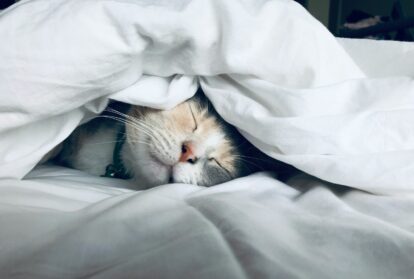Having trouble sleeping? You’re not alone
Mental health survey reveals Suffolk’s sleeping habits
Fewer than one in five people in Suffolk were getting enough sleep last year, according to our research.
Data released to mark World Sleep Day showed just 19.7% of people in the county felt they were getting a healthy amount of sleep in 2024 – down from 36.7% the year prior.
Sleep is one of every person’s 12 physical and emotional needs, with the average adult needing around eight hours sleep a night – allowing their bodies to repair and reduce cortisol levels.
The impact of poor sleep
Failure to get enough sleep can therefore open the door to increased stress, anxiety and low mood, which if untreated could lead to depression.
Our Head of Mental Health Education Ezra Hewing said: “We all have physical and emotional needs, which when met help us stay at the wellbeing side of the Mental Health Continuum.
“All of our needs are important – but Sleep is especially important to both our physical and mental health. We need deep sleep to repair our body’s cells, while our brains need REM sleep, when we dream, to switch off emotions we have been unable to act upon.
“A prolonged lack of sleep can delay the repair of our bodies and prevent the calming of emotions. This can leave stress and negative emotions left over from the previous day.”
What does the data show?
Data was collected via Suffolk Mind’s Emotional Needs Survey, an ongoing online portal where people can check-in and report on their mental health.
A total of 2,487 people responded to the survey, including 442 who also listed their biggest barriers to sleep.
Almost 65% of those cited their physical or mental health as their main barrier, with others including their relationships (28.7%), their work situation (24%) and their financial situation (23%).
Ezra said trying to establish a bedtime routine that’s free from distractions can be a good step towards getting a healthy sleep pattern back on track.
He added: “With everything from the cost-of-living crisis to worrying about politics in the news, it is understandable that more people might find it harder to get a good night’s sleep.
“But small steps can make a big difference.
“That includes establishing a distraction-free sleeping environment, taking away the temptation to doomscroll on your phone or even just to watch TV.
“Creating a routine that helps you truly rest and unwind can help you naturally drift off.
“Overall however, it’s so important to ensure you focus on meeting other physical and emotional needs in healthy ways, which will give you the best possible chance of getting more than just your forty winks.”















